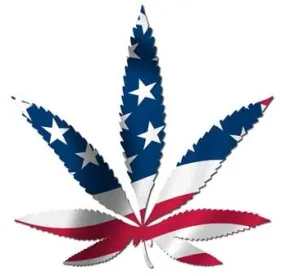On January 4th, Attorney General Jeff Sessions took a big step backward. He announced that the Department of Justice rescinded the " Cole Memo " and other internal enforcement guidelines, issued under the Obama Administration that de-prioritized enforcement of federal marijuana prohibition against individuals and businesses complying with state laws regarding the use of marijuana. Since the passage of the Controlled Substances Act (CSA) in 1970, Congress has generally prohibited the cultivation, distribution and possession of marijuana.
Going one step further, the Department of Justice, Attorney General Sessions directed all U.S. Attorneys to enforce federal law by pursuing prosecutions related to marijuana activities. The action was framed as a return to the rule of law and to trust in local and federal prosecutors to deploy legal resources to reduce violent crime, stem the tide of the drug crisis, and dismantle criminal gangs. There was a bit of room for some hope, in that the memorandum states that it is " ... intended solely as a guide to the exercise of investigative and prosecutorial discretion in accordance with all applicable laws, regulations, and appropriations." So the local U.S. Attorney could decide, for example, that prosecution of, say a medical marijuana dealer selling only to parents of children with epilepsy, was not a prosecution priority.
With the legalization of cannabis under state law in 29 states and the District of Columbia and the restraint exercised by U.S. Attorneys under the Cole Memorandum, the cannabis industry has flourished for both medical and recreational purposes. Many believe that it has had the opposite effect of reducing the opportunity for criminal activity. Growers and dealers in legalizing states have sought to advertise their products and services with broadcasters, and many have accepted their business. That decision, however, has always been risky, given the uncertain effect of the Cole Memorandum and its many qualification requirements. Marijuana remains classified as an illegal drug under the Controlled Substances Act and in a case called Raich v. Gonzales, the Supreme Court ruled the federal government can prosecute medical marijuana patients, even in states with compassionate use laws.
Some broadcasters took comfort in the fact that prosecutions have nearly always been of the advertiser business and not the advertising medium. Yet, taking cannabis advertising is at most a calculated bet and that bet just got a lot worse.
Bottom Line
The advice now must be that it, given this administration's views about the product and the Attorney Generals action, do not take cannabis advertising unless and until this effect of this action is clarified and possibly reversed or Congress acts to reverse this action. As federal licensees, a broadcast licensee could very well endanger their license renewal, or even risk license revocation and criminal prosecution and the First Amendment cannot be relied upon when advertising illegal products or services.
This article originally was published by AllAccess.com



 />i
/>i
